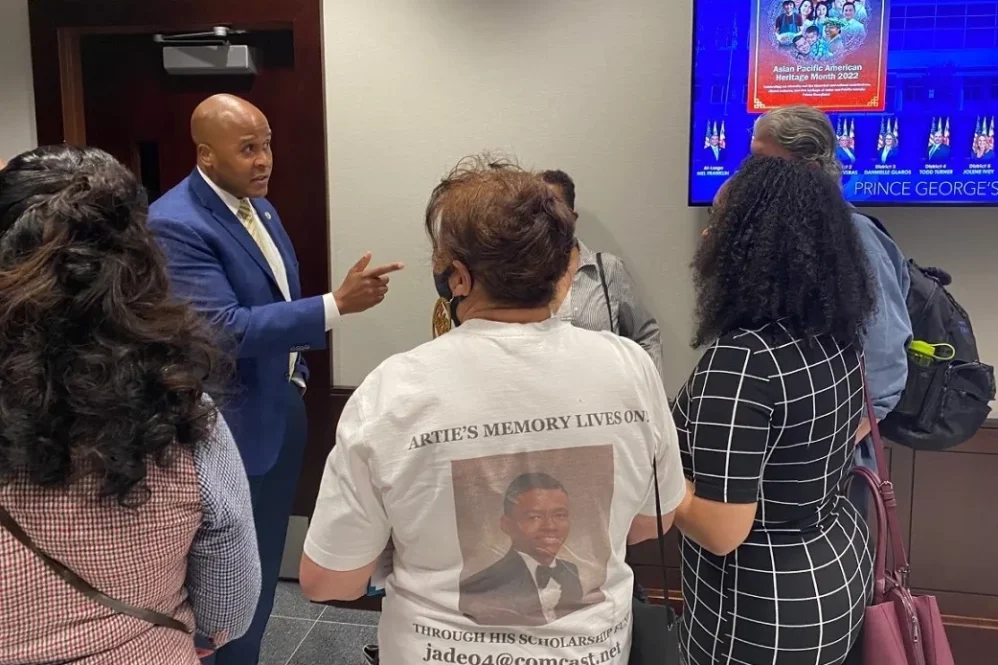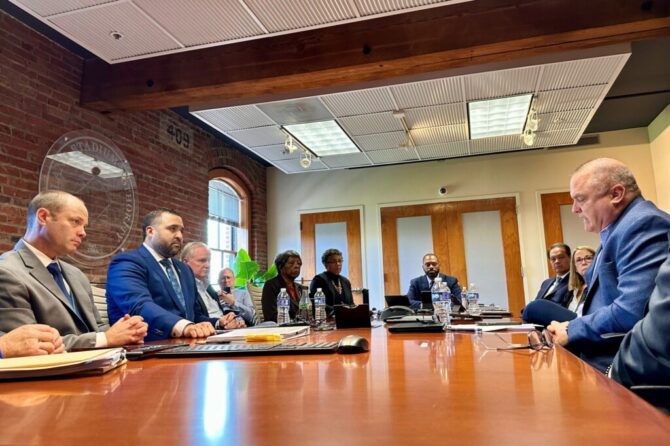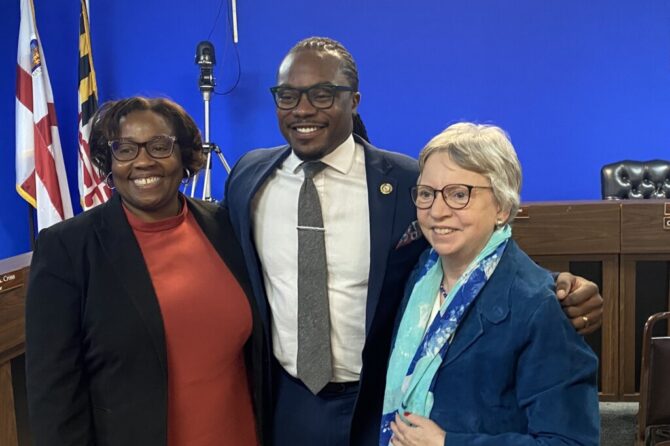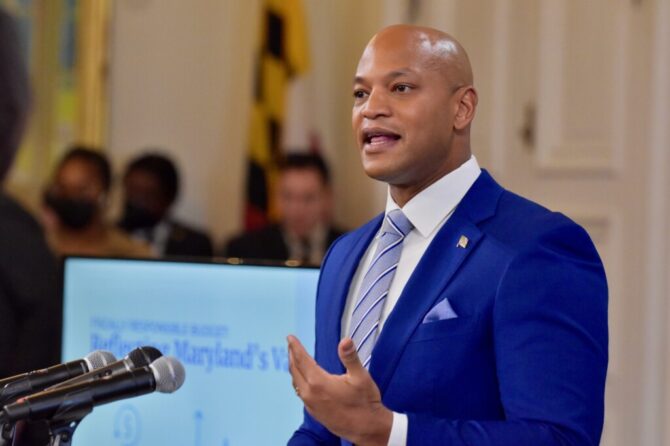With a July 1 state-imposed deadline approaching for Maryland jurisdictions to approve police accountability measures, some Prince George’s County residents urged the county council to slow down the process.
After hearing from more than a dozen residents, community leaders and activists, the council agreed Tuesday to wait another six days to review the proposals.
“There must be effective and lawful policing without depriving a citizen of his or her rights,” said Dorothy Copp Elliott, whose son Archie Elliott III died in a police-related shooting in District Heights in June 1993. “We deserve better and we demand better as we speak truth to power.”
One main reason the council chose to wait until next Monday to review the police measures was because of several amendments received Monday and Tuesday, which some people mentioned during a council session at the Wayne K. Curry Administration Building in Largo.
Elliott and a few others focused on the county’s establishment of a police accountability board.
Instead of accepting members to be submitted by the county executive’s office, some residents suggested council members choose one person from each of the nine council districts and another chosen by the two at-large representatives. The county executive’s office proposed 11 members to serve on the board.
A legal question from residents and a few council members: What is the local governing body to choose the members?
“The governing body is both the county council and county executive,” said council attorney Colette Gresham.
Rhonda Weaver, an attorney in the county’s Office of Law, said it’s been the county’s “tradition” for the county executive to present names of individuals to serve on various boards. The council can either confirm or choose other people.
“Once upon a time slavery was a tradition, so I would ask you to look at the law and see how it best serves us,” said Tamara McKinney of Lanham. “I would hate to see the county executive office appoint anyone to anything as a solo entity.”
Several people also suggested the board shouldn’t permit any current police officer on the police accountability board.
The legislation currently won’t allow that to happen. In addition, no employee with the state, county, sheriff’s department, a municipality, an elected official, or candidate currently seeking a municipal, county or statewide office would be permitted to serve.
Nikki Owens, cousin of William Green, whose family received a $20 million settlement from the county after he was killed by a county police officer in January 2020, said the amendment should not include former police officers, family members of law enforcement or anyone affiliated with law enforcement officials and politicians.
“This board should be completely separate of any kind of police and political interference,” she said. “Otherwise, it’s still useless and a waste of taxpayers’ dollars.”
Will Milaw, president of Fraternal Order of Police Lodge 112 with the Prince George’s County Deputy Sheriff’s Association, said he wants improvements in his profession, too.
“My heart goes out to the families of the folks that spoke here today. I can’t imagine losing a loved one, especially in those circumstances,” he said. “I care about you. We care about you. Nothing upsets me more than having a police officer who I can’t trust in the ranks because it stains all of us. We want [accountability] just like everybody else.”
Before the council completed the police accountability discussion, Council member Edward Burroughs III (D-District 8) of Camp Springs offered some advice for the executive branch.
“I would urge the administration to do some reflecting as it relates to the process that has occurred thus far. We do, essentially, nominate or appoint individuals without the public process,” he said. “We have a long way to go. I hope that we consider some of those things that we’ve done before Monday.”
This article is from the Washington Informer, read more articles like this here.
Photo: Will Milam (left), president of Fraternal Order of Police Lodge 112 with the Prince George’s County Deputy Sheriff’s Association, talks with community leaders and activists at the County Administration Building in Upper Marlboro on May 31 after the Prince George’s County Council decided to wait another six days to review police accountability legislation. (William J. Ford/The Washington Informer)











